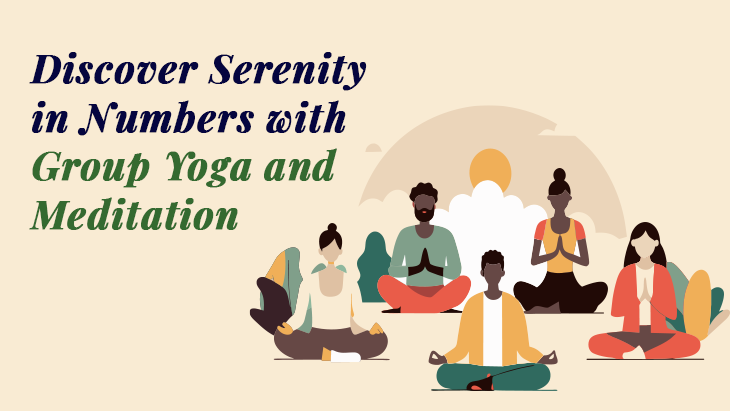Loneliness is a universal human experience that can significantly impact mental health. In today's fast-paced world, where social connections are increasingly digital, feelings of isolation are more prevalent than ever. But what exactly is the impact of loneliness on mental well-being? Let's delve into this topic and explore how loneliness affects our minds and emotions, and most importantly, how we can combat it.
Impact Of Mental Health Because Of Loneliness
Table Of Contents
1. Understanding Loneliness
2. The Mental Health Toll of Loneliness
3. The Biology Behind Loneliness
4. Coping Mechanisms for Battling Loneliness
5. Building Meaningful Connections
6. Seeking Professional Help
7. Embracing Hobbies and Interests
8. Fostering Self-Compassion
9. The Role of Social Media
10. Conclusion
11. FAQs
1. Understanding Loneliness
Loneliness isn't just about being physically alone it's a deep sense of disconnect from others, even in a crowd. It's that feeling of emptiness that creeps in despite being surrounded by people. Whether due to social isolation, a lack of meaningful relationships, or feeling misunderstood, loneliness can affect anyone, regardless of age or background.
2. The Mental Health Toll Of Loneliness
The impact of loneliness on mental health is profound. It can lead to heightened stress levels, anxiety, and depression. When we lack social support and meaningful connections, our minds can spiral into negative thought patterns, affecting our self-esteem and overall happiness. Over time, chronic loneliness can even increase the risk of developing serious mental health conditions.
3. The Biology Behind Loneliness
Loneliness isn't just a psychological phenomenon it also has biological implications. Studies have shown that prolonged loneliness can disrupt hormone levels and weaken the immune system. It activates stress responses in the body, leading to inflammation and other health issues. In essence, loneliness doesn't just affect our minds it can harm our physical health as well.
Know More About the Benefits Of Mental Health Therapy
4. Coping Mechanisms For Battling Loneliness
Combatting loneliness requires proactive steps. Engaging in activities that bring joy, connecting with loved ones, and seeking support from peers are essential. Additionally, practicing mindfulness and cultivating gratitude can help shift our focus away from feelings of loneliness towards appreciation for what we have.
5. Building Meaningful Connections
Quality over quantity is key when it comes to relationships. Cultivating deep, meaningful connections with others can provide a sense of belonging and purpose. Whether through shared interests, hobbies, or simply meaningful conversations, investing in relationships can significantly impact our mental well-being.
6. Seeking Professional Help
There's no shame in reaching out for professional support when dealing with loneliness and its associated mental health challenges.Online Wellness Therapists and counselors can provide valuable tools and strategies for coping with loneliness, as well as addressing any underlying issues contributing to these feelings.
7. Embracing Hobbies And Interests
Finding activities that bring us joy and fulfillment can help alleviate feelings of loneliness. Whether it's painting, gardening, or joining a sports team, hobbies provide opportunities for social interaction and personal growth. They also serve as a reminder of our individuality and the things that make us unique.
8. Fostering Self-Compassion
Learning to be kind to ourselves is crucial when combating loneliness. Practicing self-compassion involves treating ourselves with the same warmth and understanding that we would offer to a friend in need. By cultivating a positive relationship with ourselves, we can build resilience against feelings of loneliness and inadequacy.
9. The Role Of Social Media
While social media can connect us to others, it's important to recognize its limitations. Spending excessive time on social platforms can lead to feelings of comparison, inadequacy, and FOMO (fear of missing out). Instead of relying solely on virtual connections, prioritize face-to-face interactions and meaningful relationships offline.
10. Conclusion
In conclusion, loneliness has a profound impact on mental health, affecting millions of people worldwide. However, by understanding its effects and implementing coping strategies, we can mitigate its negative consequences. Whether through building meaningful connections, seeking professional help, or practicing self-compassion, there are steps we can take to combat loneliness and nurture our mental well-being.
11. FAQs [FREQUENTLY ASKED QUESTIONS]
Q1. What are some common signs of loneliness?
Loneliness can manifest in various ways, including feelings of sadness, emptiness, or a lack of motivation. Physical symptoms such as fatigue and changes in appetite or sleep patterns may also indicate loneliness.
Q2. Is loneliness different from being alone?
Yes, loneliness is distinct from being alone. While being alone refers to a physical state of solitude, loneliness is a subjective feeling of isolation or disconnect from others, even in the presence of company.
Q3. Can loneliness be a temporary feeling?
Yes, loneliness can be a transient emotion that arises in response to certain life events or circumstances. However, chronic loneliness, characterized by persistent feelings of isolation over an extended period, may require intervention.
Q4. How can I help a loved one who is experiencing loneliness?
Offering your support and understanding is crucial when helping a loved one cope with loneliness. Encourage them to engage in social activities, connect with support groups, or seek professional help if needed.
Q5. Are there online resources available for combating loneliness?
Yes, there are numerous online resources, forums, and support groups dedicated to addressing loneliness and promoting mental well-being. These platforms provide a safe space for individuals to share their experiences, seek advice, and connect with others facing similar challenges.
Loneliness may be a prevalent issue in today's society, but it's not insurmountable. By recognizing its impact on mental health and taking proactive steps to combat it, we can cultivate a sense of connection and belonging in our lives. Remember, you're not alone in this journey towards better mental well-being.






Leave a reply